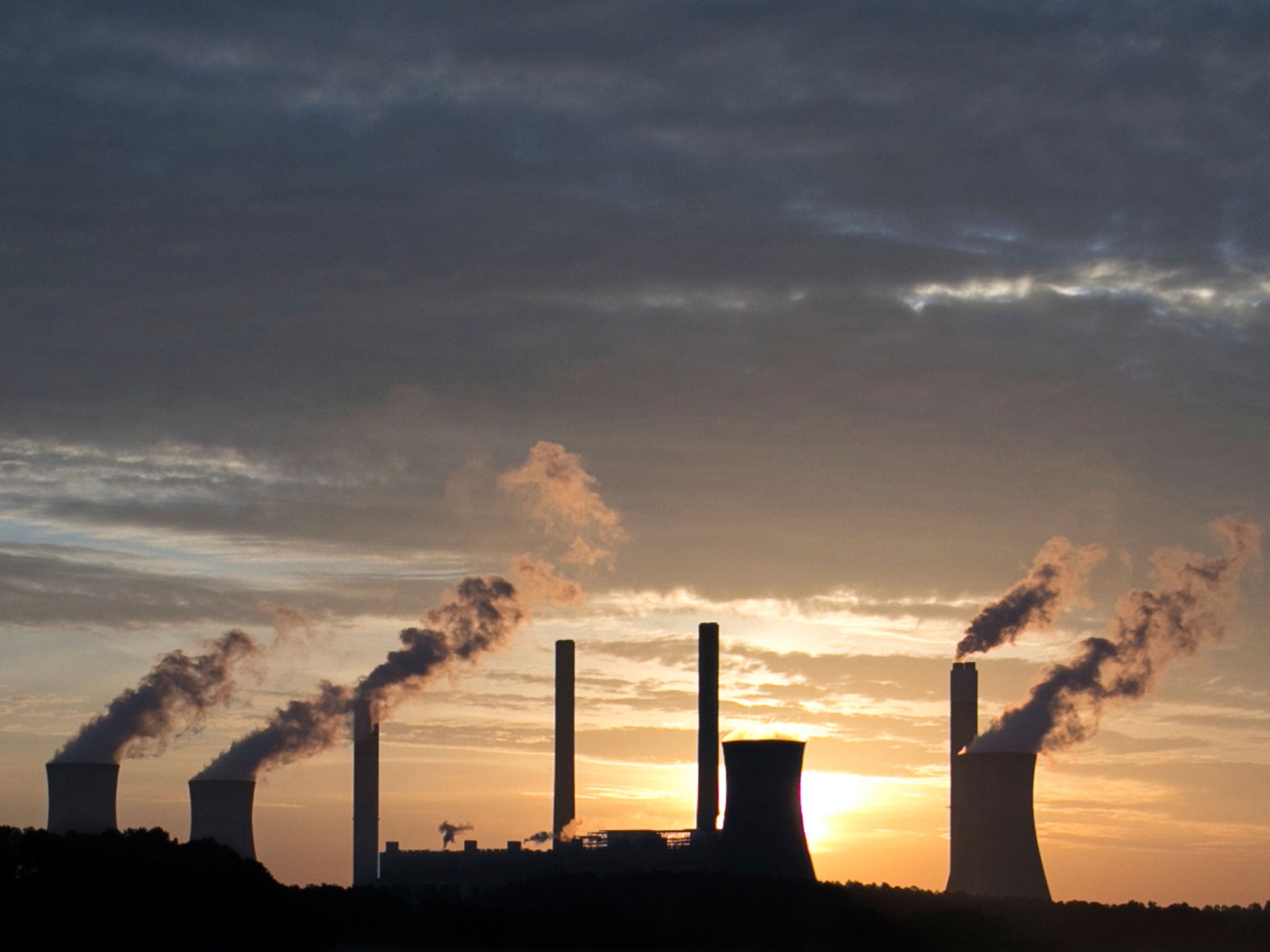World biggest 250 companies responsible for one third of all greenhouse emissions, finds report
Only about 30 per cent of the biggest firms have set strong goals to curb carbon dioxide emissions, Thomson Reuters found

The world’s 250 biggest listed companies account for a third of all man-made greenhouse gas emissions yet few have strong goals to limit rising temperatures, a study showed on Tuesday.
Coal India, Gazprom and Exxon Mobil topped the list when measuring carbon dioxide emitted by companies and by consumers using their products, it said.
“Without continual reduction in emissions from this group of companies, effectively mitigating the long-term risks of climate change is not possible,” according to the study, a Thomson Reuters Financial & Risk white paper.
In the past three years, emissions from the group of 250 had been flat “when they should have been going down by roughly three percent per year” to limit temperatures in line with goals set by the 2015 Paris climate agreement, it said.
The report, written in collaboration with Constellation Research & Technology, emissions tracking group CDP and BSD Consulting, found the group emitted a third of world carbon emissions and that only about 30 per cent of the 250 firms had set strong goals to curb them.
Under the 2015 Paris Agreement, almost 200 nations promised to curb emissions to limit more heat waves, downpours and rising sea levels and said they would work to involve the private sector.
US President Donald Trump, who doubts human activities are the main driver of climate change, plans to pull out.
David Lubin, a co-author of the report at Constellation Research & Technology, told Reuters: “250 CEOs - that’s a relatively small auditorium if you can bring together the leaders who really have a significant impact on the fate of the planet.”
Tim Nixon, a co-author at Thomson Reuters, said the study found “no evidence” that companies adopting stronger policies to reduce their carbon emissions paid a penalty in terms of shareholder returns, profits or employment.
And case studies of companies including Xcel Energy, Ingersoll Rand and Total, which have acted strongly to curb emissions, showed there may even be a significant benefit to action, he said.
Almost 200 nations will meet in Bonn, Germany, next week to work on a detailed “rule book” for the Paris Agreement and ways to bolster the pact after Trump’s planned withdrawal.
Reuters
Subscribe to Independent Premium to bookmark this article
Want to bookmark your favourite articles and stories to read or reference later? Start your Independent Premium subscription today.

Join our commenting forum
Join thought-provoking conversations, follow other Independent readers and see their replies